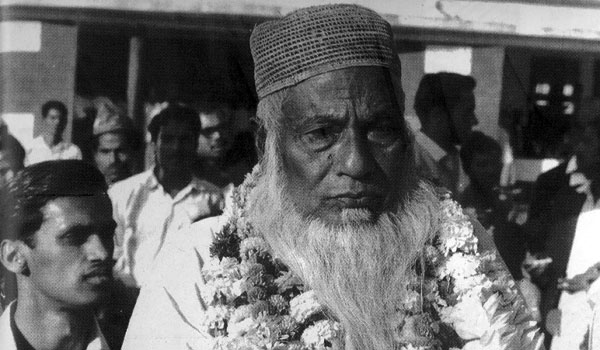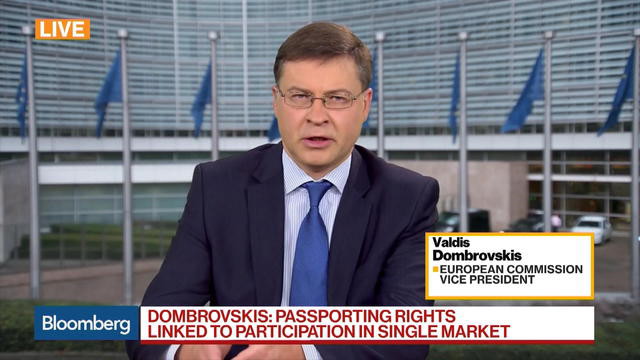Moulana Bhashani…forty years after 1976
Moulana Abdul Hamid Khan Bhashani’s finest hour came in the final phase of the mass upsurge against Field Marshal Mohammad Ayub Khan in early 1969. As the struggle for a restoration of democracy intensified in what was yet a united Pakistan, Bhashani took charge of the movement and demanded that the Agartala Conspiracy Case be withdrawn and that Sheikh Mujibur Rahman be freed without conditions. He vowed to lead a march on Dhaka cantonment, where all the accused in the case were being tried, and compel the military junta to accede to the popular demand.
It was a time when jalao and gherao – burn and besiege – were the weapons Bhashani employed against the ruling classes. On the one hand, he was providing deft leadership to the Bengalis in their struggle for an Ayub-free land. On the other, he made sure, through conveying the message to the soon-to-be Bangabandhu, that under no circumstances should he agree to join the Round Table Conference convened by the President in Rawalpindi as a way of tiding over the political crisis engulfing the two wings of Pakistan. In the event, Sheikh Mujibur Rahman was freed, along with his fellow prisoners save one (Sergeant Zahurul Haque had been killed in prison by the army only days earlier), was anointed as Bangabandhu at a mass rally before flying off to West Pakistan to attend the RTC.
Intriguingly, Bhashani, whom his followers and detractors alike often referred to as the Red Moulana owing to his Leftist political orientation, stayed away from the RTC along with his fellow maverick Zulfikar Ali Bhutto. Bhashani was convinced that the conference would yield few, if any, results. He was proved right when only days later the army intervened a second time in politics, forcing Ayub Khan out and foisting Agha Mohammad Yahya Khan on the country.
Four decades after his death, it becomes necessary to cast light on Moulana Bhashani’s politics and his impact on Bengalis both in the nearly quarter century in which they were part of Pakistan and in the few years he was to live out the remains his life in a sovereign Bangladesh. Studies of Bangladesh’s history are incomplete without taking into account the tales of all the important players in its evolution to an independent state. Bhashani was one of the most influential among those players, demonstrating his indispensability in national politics through taking charge of the newly formed Awami Muslim League as its president in June 1949. It was the winning combination of Bhashani, Sher-e-Bangla A.K. Fazlul Huq and Huseyn Shaheed Suhrawardy which made it clear to the central authorities in Karachi that change was called for. The triumph of the Jukto – United – Front at the provincial elections of 1954 was the loud message that went out.
It was victory that was not to be permitted to last. The Jukto Front ministry was dismissed within two months of taking charge. Humiliation was piled on Sher-e-Bangla. None of that, however, deterred Bhashani, whose populism continued to be the underpinning of his politics. His natural inclination toward secular politics reached a milestone when the Awami Muslim League graduated to being the Awami League, a significant development in the context of Pakistani politics. Bhashani’s populism was a thorn in the flesh for the country’s entrenched interests, to a point where General Iskandar Mirza threatened to ‘shoot him like a dog.’ The irony was to come later. Mirza would be bundled out of history. Bhashani would go on and on. His politics had the force of a gale that could not be staved off by politicians ready to compromise or indulge in somersault.
A significant aspect of the Bhashani persona, even in those fraught days of the Cold War in the 1950s, was his publicly stated unwillingness to go along with Suhrawardy’s pro-American stance in foreign policy. Bhashani was perspicacious enough to understand that such US-dominated regional organizations as SEATO and CENTO would not be able to withstand the historical waves whose sounds he already detected in the future. He left the Awami League and in February 1957 gave shape to a new political organization, the National Awami Party, through a conference at Kagmari. If that was an astute move on his part, it came to the accompaniment of the radical when he warned the vested interests of West Pakistan of East Bengal’s willingness to say ‘assalam-o-alaikum’ to them before going its own way. It was a bold statement, perhaps made on the emotional spur of the moment, but it did set people thinking of future possibilities.
And yet there were the contradictions in Moulana Bhashani’s politics. Much as he was opposed to any military dominance of politics, he was ready by 1963 to ask his followers not to disturb Ayub Khan. His reasoning was clear: Ayub Khan and Z.A. Bhutto were busy reconfiguring Pakistan’s foreign policy through opening a diplomatic road to China. An ardent admirer of Chinese communism, Bhashani was willing to countenance Pakistan’s new ties with Beijing. Bhashani, throughout his career, showed not the slightest desire of seeking power and yet it remained his preoccupation to speak, for much of the time, truth to power. And of course there was always a dash of adventurism in his politics. His decision to boycott the general election, Pakistan’s first, in 1970 stunned people all across the country. Add to that his public declaration, only three days before the country went to the polls in December of the year, of East Pakistan’s ‘independence’ as a sovereign state. For once in a long time, Bhashani’s politics clearly came across as flawed.
But none of this detracts from the sheer patriotism Moulana Bhashani demonstrated once the nation plunged into the War of Liberation in March 1971. He was part of an all-party advisory council constituted by the Mujibnagar government, though there is reason to believe that he deserved to be given a larger role in the struggle for freedom. He would not be persuaded by even his loyalist Mashiur Rahman Jadu Miah to return to an occupied Bangladesh, but neither was he in a position to exert a degree of influence commensurate with his reputation on the freedom movement. But that did not hold him back, once Pakistan had been defeated in battle, from returning to politics with renewed vigour. That begs the question, though: did Moulana Bhashani’s politics in free Bangladesh identify with the aspirations of its people?
The times were difficult for Bangabandhu’s government, the reasons for which lay within as well as without. Bhashani did not help matters through the incendiary reports which appeared on a regular basis in his news outlet Haq Katha. His public rallies, both in the nation’s capital as also elsewhere, dwindled to being demonstrations of less than purposeful comments that titillated the crowds. He was vituperative in his remarks on Sheikh Fazlul Haq Moni, plainly parochial in blaming the ‘Hindu food minister’ Phani Bhushan Majumdar for the food shortages and clearly embarrassed Jadu Miah by informing his audience that his chief lieutenant knew how high the price of alcohol had climbed in Mujib-governed Bangladesh. He made it a point, at every rally he addressed, to remind people that the Father of the Nation had once been one of the many secretaries who worked under him in his days as president of the Awami League.
In effect, Moulana Bhashani’s politics had in a very large sense lost direction by the early 1970s. His hunger march – bhooka michhil – toward the old Ganobhaban in 1972, at a time when Bangabandhu was out of the country, did him little good. Part of the reason had to do with the mischief the government demonstrated by releasing to the media images of Bhashani savouring sweets as senior government leaders sat around him. Outside Ganobhaban, his small band of followers waited in pouring rain. But the bankruptcy of Bhashani’s brand of politics revealed itself when, in a clear shift away from his secular, socialistic reputation, the Moulana launched his deeply disturbing campaign for a ‘Muslim Bangla’ in a non-communal Bangladesh. Communal politics, proscribed in Bangladesh since liberation in 1971, thus insinuated itself back into the political scene courtesy Abdul Hamid Khan Bhashani. That would be the start, with dangerous consequences.
Moulana Bhashani was a perennial maverick in politics, both in pre-1971 Pakistan and post-1971 Bangladesh. He was hurt when the Chinese leadership, with whom he identified in a great many ways, did not respond to his call for support in Bangladesh’s war against Pakistan. He was clearly embarrassed when Beijing vetoed Bangladesh’s efforts to enter the United Nations. When Bangabandhu went for the Fourth Amendment to the Constitution in January 1975, Bhashani, like so many others and for good reason, was critical of the move. And yet when Bangabandhu drove down to Santosh, Tangail, in March, to seek his blessings, Bhashani stepped out of his humble hut, walked a goodly part of the dusty path to embrace him and tell him he was behind him in his efforts for change. Bangabandhu, ever respectful of the Moulana, touched his feet in profound veneration.
Sheikh Mujibur Rahman’s respect for Moulana Bhashani was without ambiguity. Likewise, Bhashani’s affection for Mujib, despite the conflicting positions they came to hold in politics, bordered on the paternal. But that affection was shot through with insensitivity when Bhashani welcomed the violent coup d’etat which destroyed Bangabandhu and his government in August 1975. The Moulana’s unpredictability was to manifest itself one more time. When Khondokar Moshtaq visited him soon after the coup, Bhashani asked him why he had taught the tiger to taste blood. With the dark legacies of Ayub Khan and Yahya Khan not yet forgotten, Bhashani’s hint could not have been clearer.
Moulana Abdul Hamid Khan Bhashani’s political legacy is a thing of the past. The National Awami Party, which in his lifetime splintered into two factions, is as good as dead. Within a couple of years of his death, his disciples would make a beeline for positions in the regime of General Ziaur Rahman. In the 1980s, they would repeat the exercise, this time through exhibitions of fawning behaviour before General Hussein Muhammad Ershad.
Not many years ago, a leftwing Pakistani political leader told this writer that while many Pakistanis like him were happy that Bengalis had gone their independent way, they missed Sheikh Mujibur Rahman and Moulana Bhashani in Pakistan’s politics. He explained. All the way from the 1950s to the early 1970s, the two Bengali politicians were powerful voices for democracy in Pakistan and had kept the ruling classes on their toes through their mass appeal and uncompromising political programmes. After 1971, feudalism had swiftly reclaimed Pakistan’s politics.
The Pakistani politician looked sad and pensive. In the distance, the Margalla Hills beyond Islamabad were fast passing under a gathering twilight shadow.
(Moulana Abdul Hamid Khan Bhashani, born on 12 December 1880, died on 17 November 1976)
(Published 2018/03/24 at 3:37 am)



















Comments